
United Nations Security Council resolution 819, adopted unanimously on 16 April 1993, after reaffirming resolutions 713 (1991) and all (1992) subsequent resolutions, the Council expressed concern at the actions of Bosnian Serb paramilitary units in towns and villages in eastern Bosnia and Herzegovina, including attacks on civilians, the United Nations Protection Force and disruption to humanitarian aid convoys. The resolution marked the UN's first civilian "safe area" being declared; it failed to prevent the Srebrenica massacre.
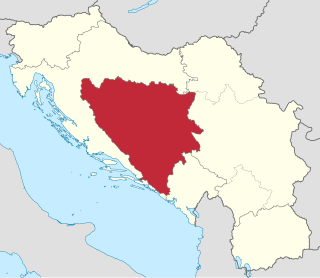
United Nations Security Council resolution 752, adopted unanimously on 15 May 1992, after reaffirming resolutions 713 (1991), 721 (1991), 724 (1991), 727 (1992), 740 (1992) 743 (1992) and 749 (1992), the Council expressed concern at the situation in the Yugoslavia, in particular the fighting in Bosnia and Herzegovina, demanding that all parties end the fighting and respect the ceasefire signed on 12 April 1992.

United Nations Security Council resolution 771, adopted unanimously on 13 August 1992, after reaffirming resolutions 713 (1991), 721 (1991), 724 (1991), 727 (1992), 740 (1992), 743 (1992), 749 (1992), 752 (1992), 757 (1992), 758 (1992), 760 (1992), 761 (1992), 762 (1992), 764 (1992), 769 (1992) and 770 (1992), the council expressed concern at and condemned widespread violations of international humanitarian law in the territory of the former Yugoslavia and in particular, Bosnia and Herzegovina.

United Nations Security Council resolution 787, adopted on 16 November 1992, after reaffirming Resolution 713 (1991) and all subsequent resolutions on the topic, the council called upon the parties in Bosnia and Herzegovina to consider the draft outline constitution as a basis for negotiating a political settlement of the conflict in the country, and went on to impose further international sanctions on the Federal Republic of Yugoslavia.

United Nations Security Council resolution 820, adopted on 17 April 1993, after reaffirming all previous resolutions on the topic for a lasting peace settlement in Bosnia and Herzegovina and the region, the council discussed the peace plan for Bosnia and Herzegovina and comprehensive steps to ensure its implementation.
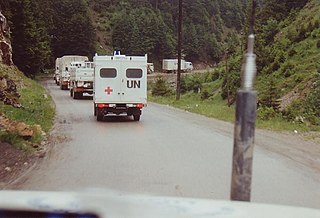
United Nations Security Council resolution 836 was adopted on 4 June 1993. After reaffirming Resolution 713 (1991) and all subsequent resolutions on the situation in the former Yugoslavia, the Council expressed its alarm at the continuing situation in Bosnia and Herzegovina and decided to expand the mandate of the United Nations Protection Force (UNPROFOR) by allowing it to use force to protect the "safe areas".
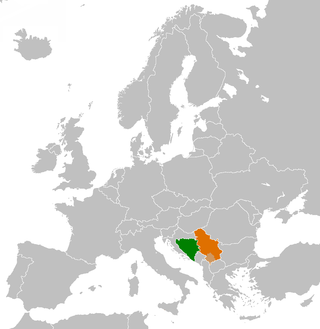
United Nations Security Council resolution 838, adopted unanimously on 10 June 1993, after reaffirming Resolution 713 (1991) and all subsequent resolutions on the situation in the former Yugoslavia and in particular Bosnia and Herzegovina, the Council discussed options for the deployment of international observers on the borders of Bosnia and Herzegovina to ensure implementation of previous Security Council resolutions.

United Nations Security Council resolution 859, adopted unanimously on 24 August 1993, after recalling all resolutions on the situation in Bosnia and Herzegovina, the council noted that, despite all previous security council resolutions since Resolution 713 (1991), the region was still a scene of hostilities and there was little compliance with previous resolutions, particularly by the Bosnian Serb party.
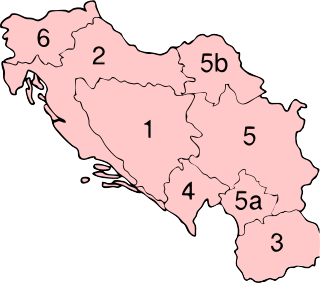
United Nations Security Council resolution 871, adopted unanimously on 4 October 1993, after reaffirming resolutions 713 (1992) and 743 (1992) and subsequent resolutions relating to the situation in the former Yugoslavia and United Nations Protection Force (UNPROFOR), the Council expressed concern that United Nations peacekeeping plan for Croatia, in particular Resolution 769 (1992), had not been implemented and went on to discuss the peace plan and extend UNPROFOR's mandate until 31 March 1994.

United Nations Security Council resolution 913 was adopted unanimously on 22 April 1994, after reaffirming all resolutions on the situation in Bosnia and Herzegovina and also Resolution 908 (1994). The Council discussed the situation in the safe area of Goražde and a settlement of the conflict.

United Nations Security Council resolution 941, adopted unanimously on 23 September 1994, after reaffirming all resolutions on the situation in Bosnia and Herzegovina, the Council discussed violations of international humanitarian law in Banja Luka, Bijeljina and other areas of the country.
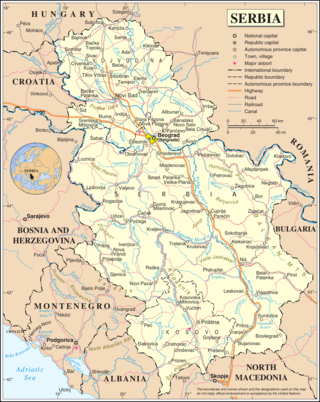
United Nations Security Council resolution 970, adopted on 12 January 1995, after reaffirming all resolutions on the situation in Bosnia and Herzegovina in particular Resolution 943 (1994) concerning the border closure between the Federal Republic of Yugoslavia and Bosnia and Herzegovina, the Council decided that measures in that resolution would be suspended for a further period of 100 days.

United Nations Security Council resolution 981, adopted unanimously on 31 March 1995, after reaffirming all resolutions on the situation in the former Yugoslavia, the council established the United Nations Confidence Restoration Operation in Croatia (UNCRO) for a period terminating 30 November 1995.

United Nations Security Council resolution 994, adopted unanimously on 17 May 1995, after reaffirming all resolutions on the conflicts in the former Yugoslavia, particularly resolutions 981 (1995), 982 (1995) and 990 (1995), the Council discussed the withdrawal of Croatian Army from the zone of separation taken in Operation Flash on May 1st and the full deployment of the United Nations Confidence Restoration Operation in Croatia (UNCRO).

United Nations Security Council resolution 1004, adopted unanimously on 12 July 1995, after recalling all resolutions on the situation in the former Yugoslavia, the council, acting under Chapter VII of the United Nations Charter, demanded that Bosnian Serb forces withdraw from the safe area of Srebrenica in Bosnia and Herzegovina and respect the safety of personnel from the United Nations Protection Force (UNPROFOR). The resolution was passed during the Srebrenica massacre.

United Nations Security Council resolution 1009, adopted unanimously on 10 August 1995, after recalling all resolutions on the situation in the former Yugoslavia including resolutions 981 (1995), 990 (1995) and 994 (1995), the Council demanded that the Government of Croatia strictly observe Security Council resolutions after an offensive by the Croatian Army began on 4 August 1995.

United Nations Security Council resolution 1010, adopted unanimously on 10 August 1995, after recalling all resolutions on the situation in the former Yugoslavia and reaffirming Resolution 1004 (1995), the Council demanded that the Bosnian Serbs release all detained persons and permit access to them by international humanitarian organisations.

United Nations Security Council resolution 1031, adopted unanimously on 15 December 1995, after recalling all previous resolutions on the conflicts in the former Yugoslavia, the council, acting under Chapter VII of the United Nations Charter, discussed the transfer of authority from the United Nations Protection Force (UNPROFOR) to the multinational Implementation Force (IFOR).

United Nations Security Council resolution 1034, adopted unanimously on 21 December 1995, after recalling previous resolutions including Resolution 1019 (1995), the Council discussed violations of international humanitarian law in the former Yugoslavia, specifically in Bosnia and Herzegovina.

United Nations Security Council resolution 1120, adopted unanimously on 14 July 1997, after recalling previous resolutions on Croatia including 1023 (1995), 1025 (1995), 1037 (1996), 1043 (1996), 1069 (1996) and 1079 (1996), the Council extended the mandate of the United Nations Transitional Authority for Eastern Slavonia, Baranja and Western Sirmium (UNTAES) until 15 January 1998.



















